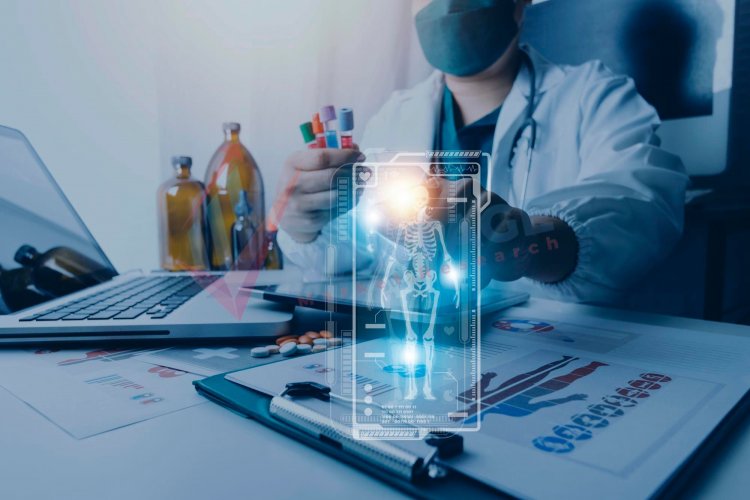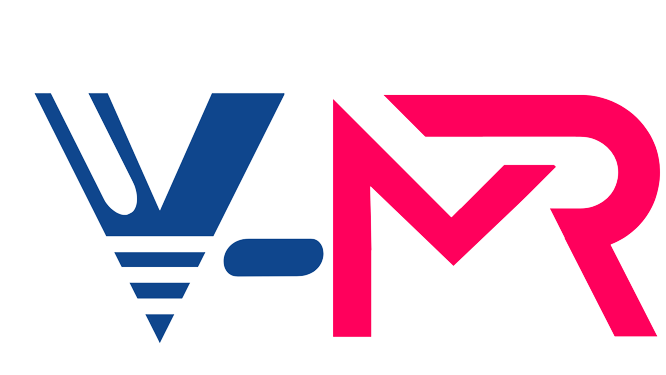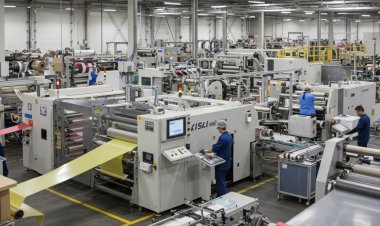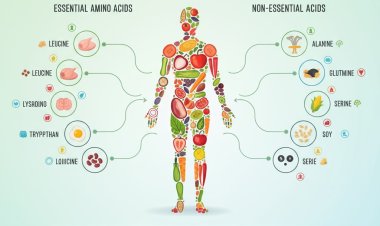Global Artificial Intelligence (AI) in Drug Discovery Market Size to Reach $7.1 Billion at a CAGR of 23.72% by 2030
Vantage Market Research expects the AI in Drug Discovery Market to reach USD 7.1 Billion by 2030, exhibiting a growth rate (CAGR) of 23.72% during 2023-2030.

The Global Artificial Intelligence in Drug Discovery Market size reached USD 1.3 Billion in 2022. Vantage Market Research expects the market to reach USD 7.1 Billion by 2030, exhibiting a growth rate (CAGR) of 23.72% during 2023-2030.
Table of Content [TOC]
|
1. Introduction |
|
|
|
2. AI's Impact on Drug Discovery |
|
|
|
|
3. Precision Medicine and Personalized Treatments |
|
|
|
|
4. Virtual Screening and Target Identification |
|
|
|
|
5. Collaborations and Partnerships |
|
|
|
6. Challenges in AI-Driven Drug Discovery |
|
|
|
7. Future Outlook |
|
|
|
|
8. Conclusion |
|
|
|
Artificial Intelligence (AI) Revolutionizing Drug Discovery: Transforming the Future of Medicine
Drug discovery has always been an exhausting and time-consuming endeavour that calls for long studies, thorough testing, and significant financial outlays. However, this environment is fast shifting because of the development of artificial intelligence (AI). By facilitating quicker and more effective identification of prospective drug candidates, enhancing clinical trials, and promoting personalized medicine, AI is revolutionizing the drug discovery market. In this blog, we'll examine how AI is revolutionizing the drug development process and what it means for the future of medicine.
Request Sample Report of Artificial Intelligence (AI) in Drug Discovery Market @ https://www.vantagemarketresearch.com/artificial-intelligence-ai-in-drug-discovery-market-2220/request-sample
Top Companies in Global AI in Drug Discovery Market
- IBM Watson (U.S.)
- Exscientia (UK)
- GNS Healthcare (U.S.)
- Alphabet (U.S.)
- Benevolent AI (UK)
- BioSymetrics Inc. (Canada)
- Euretos (Netherlands)
- Atomwise (U.S.)
- Berg Health (U.S.)
- Insitro (U.S.)
The resources and time needed to produce new pharmaceuticals are being drastically reduced by AI-driven technology. AI systems can quickly screen millions of molecules, estimate their efficacy, and find prospective medication targets thanks to their capacity to analyze enormous volumes of data. The early stages of drug discovery are accelerated as a result, allowing researchers to concentrate their efforts on the most promising ideas. For instance, tiny chemical binding affinities to target proteins have been predicted by AI platforms, reducing the need for endless hours of laboratory testing. In addition to enabling pharmaceutical companies to collect income more quickly, this enhanced speed enables patients to receive life-saving medications sooner.
Precision Medicine and Personalized Treatments
Precision medicine is one of the most exciting areas where artificial intelligence is being used in medication discovery. AI algorithms can pinpoint precise biomarkers and genetic targets for customized treatments by analyzing enormous volumes of patient data, including genetic profiles, medical histories, and lifestyle factors. Through the use of more effective medicines with fewer side effects, patients' outcomes are improved. By avoiding unsuccessful therapies, AI can, for example, assist in identifying patients who are most likely to respond to a specific medicine.
Virtual Screening and Target Identification
Virtual screening, where AI goes through large libraries of compounds to find possible therapeutic candidates, is essential. AI systems can find potential substances for additional research by examining molecular structures and forecasting their interactions with target proteins. In comparison to conventional procedures, this virtual screening dramatically reduces the number of potential medication candidates, saving time and resources. AI algorithms can also help in finding targets by examining intricate biological networks and locating crucial pathways implicated in disease progression.
Buy Now Our AI In Drug Discovery Industry Report @ https://www.vantagemarketresearch.com/buy-now/artificial-intelligence-ai-in-drug-discovery-market-2220/0
Collaborations and Partnerships
Virtual screening, where AI goes through large libraries of compounds to find possible therapeutic candidates, is essential. AI systems can find potential substances for additional research by examining molecular structures and forecasting their interactions with target proteins. In comparison to conventional procedures, this virtual screening dramatically reduces the number of potential medication candidates, saving time and resources. AI algorithms can also help in finding targets by examining intricate biological networks and locating crucial pathways implicated in disease progression.
Challenges and Future Outlook: AI in Drug Discovery Market
The integration of AI in drug discovery presents several problems that must be overcome for it to be successfully implemented, even though it has enormous potential. The availability and caliber of data present one major obstacle. Large, varied, and high-quality datasets are essential for AI algorithms to produce precise predictions and insights. However, due to privacy issues and legislative limitations, getting extensive and carefully curated information can be difficult, particularly when it comes to patient data. The interpretability and openness of AI models present another difficulty. It might be challenging to understand the logic behind some AI algorithms' predictions due to their black-box nature, which can make it tough to win regulatory approval and win over patients' and healthcare professionals' trust.
Despite the difficulties, the prospects for AI in drug discovery are very positive. The ability of AI systems to analyze complicated biological data and anticipate medication reactions will continue to be improved by developments in AI technologies such as machine learning, deep learning, and natural language processing. Additionally, while facilitating cooperative efforts in AI-driven drug discovery, the development of federated learning methodologies and data-sharing programs can solve data privacy concerns. With AI in the drug discovery process, we can anticipate better patient outcomes, quicker drug development timeframes, and more targeted and personalized therapeutics in the future.
Conclusion
The landscape of drug discovery is changing as a result of artificial intelligence, which is presenting previously unheard-of chances to speed up the creation of life-saving therapies, provide personalized healthcare, and enhance patient outcomes. The incorporation of AI in drug discovery offers fresh hope for quicker, more effective medication development and has the potential to revolutionize medical research and practice in the future. AI in the drug discovery market is poised to revolutionize the pharmaceutical business and open the door for a new age of healthcare innovation with ongoing research, cooperation, and appropriate deployment.
Frequently Asked Question (FAQ) - Antimicrobial Nanocoatings Market
- What is AI's role in drug discovery?
- AI plays a significant role in drug discovery by analyzing vast amounts of data, predicting drug-target interactions, and identifying potential drug candidates more efficiently.
- How does AI accelerate the drug discovery process?
- AI accelerates drug discovery by quickly screening and analyzing millions of molecules, reducing the time and resources required for early-stage research.
- What are the benefits of AI-driven drug discovery?
- AI-driven drug discovery leads to faster identification of promising drug candidates, personalized treatments, and improved patient outcomes with reduced side effects.
- How does AI help in precision medicine?
- AI analyzes patient data, including genetic profiles, medical history, and lifestyle factors, to identify precise biomarkers and genetic targets for personalized treatments.
- Can AI predict drug binding affinities?
- Yes, AI algorithms can predict drug binding affinities to target proteins, reducing the need for extensive laboratory testing and expediting the drug development process.
- What is virtual screening in AI-driven drug discovery?
- Virtual screening is the process where AI examines large libraries of compounds to identify potential therapeutic candidates based on their molecular structures and interactions with target proteins.
- How does AI aid in target identification?
- AI algorithms analyze complex biological networks and pathways, helping in the identification of crucial targets involved in disease progression.
- What are the challenges of implementing AI in drug discovery?
- Challenges include data availability and quality issues, interpretability of AI algorithms, and addressing privacy concerns related to patient data.
- How will AI revolutionize the pharmaceutical industry?
- AI is expected to lead to quicker drug development timeframes, more targeted and personalized therapeutics, and improved collaboration in drug discovery.
- What are the future prospects of AI in drug discovery?
- Advances in AI technologies like machine learning and natural language processing will enhance AI's ability to analyze biological data and predict medication responses more accurately.
Read Our Latest Press Release: Antimicrobial Nanocoatings Market - In-depth Analysis
Contact us
Eric Kunz
6218 Georgia Avenue NW Ste 1 - 564
Washington DC 20011-5125
United States Tel: +1 202 380 9727
Email: [email protected]
Website: Vantage Market Research


















